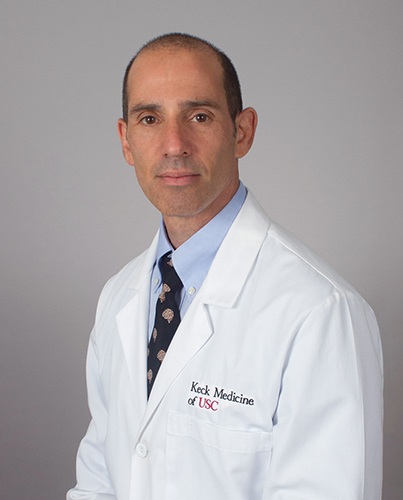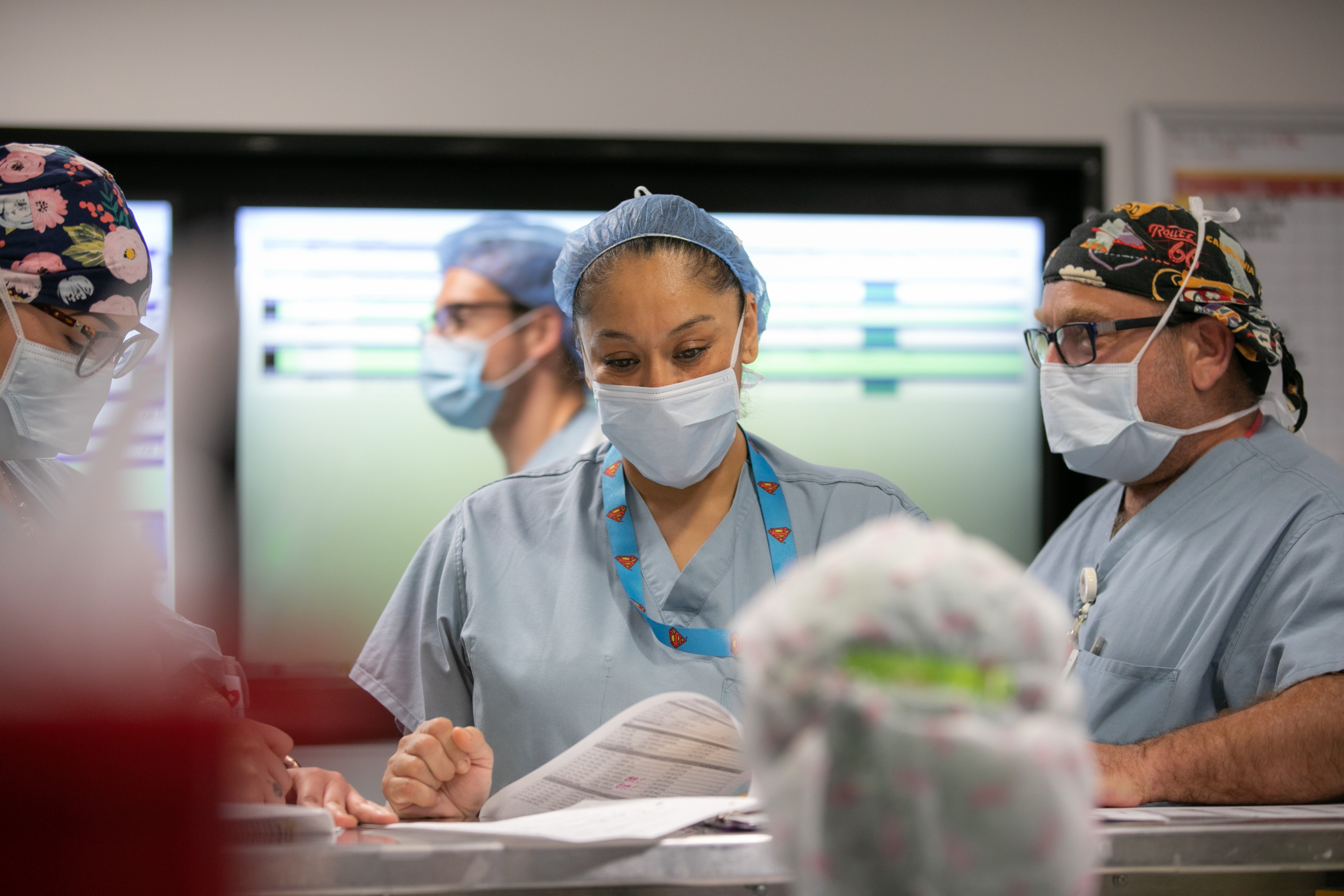Steven Siegel, MD, PhD, is professor and chair of the Department of Psychiatry and Behavioral Sciences at the Keck School of Medicine of USC. Siegel, a physician-scientist who specializes in the treatment of people who live with schizophrenia and psychosis, also holds the Franz Alexander Chair in Psychiatry.

When COVID-19 appeared in the U.S., staff and administrators from the Department of Psychiatry and Behavioral Sciences at Keck Medicine of USC instantly recognized the strain this crisis would have on the staff working in hospitals during the pandemic. Working in an intense medical setting is always tough, but COVID-19 brought about a situation of heightened stress and anxiety as hospital workers had to face potential exposures and bringing those exposures home.
As a result, we began talking about how we could make sure there were additional mental health services available to frontline workers at Keck Medicine. What we came up with became part of a program called Care for the Caregiver,* which is open to doctors, nurses, therapists, cafeteria and maintenance staff and any other workers who have been working in the health system during the pandemic.
Just as so many of our colleagues had to kick into high gear to prepare for COVID-19 patients, the Department of Psychiatry and Behavioral Sciences also kicked into high gear to make mental health services more readily available to caregivers and hospital workers in new, socially distant ways.
Many of our mental health clinicians altered their schedules to be able to work 12 hours a day answering a new phone line for our frontline colleagues who needed to speak to a therapist. We set up a series of drop-in group sessions for colleagues to connect and share experiences about working with COVID patients. There were also new seminars and work groups online on relevant topics, such as how to navigate the transition to working from home, during this time of unprecedented stress on the work front.
Although our team is already highly trained, everyone involved underwent additional training via Zoom with John Briere, PhD, professor of psychiatry at the Keck School, who is one of the preeminent world experts on trauma-informed care. His expertise has been invaluable in developing this program and continuing to guide its direction.
Care for the Caregiver is succeeding because people are willing to go above and beyond when asked. All of the staff involved with Care for the Caregiver are working nights and weekends to provide critical mental health services to people who need it most right now. As the pandemic has lasted, services have adapted to incorporate proactive calls to health care workers, as well as to offer tailored groups to meet the specific needs of individual units.
That same generous spirit helped us expand the Care for the Caregiver program beyond mental health services. Frontline workers now have access to housing if they fear they have been infected and do not want to go home, or if they have tested positive and need to quarantine away from their family.
They also can get food and other necessities so they don’t have to stand in line at the supermarket after long shifts in the hospital. Their children now can receive tutoring through Care for the Caregiver so they can get help with homework.
If anything positive has come from the COVID-19 crisis, it may be that we have a new appreciation for the people who work in hospitals who literally risk their lives to treat us when we are sick. We hope this model of taking care of caregivers can become a new standard in how we treat health care workers in times of crisis and calm.
— Steven Siegel, MD, PhD
* Keck Medicine employee credentials required to access webpage.


